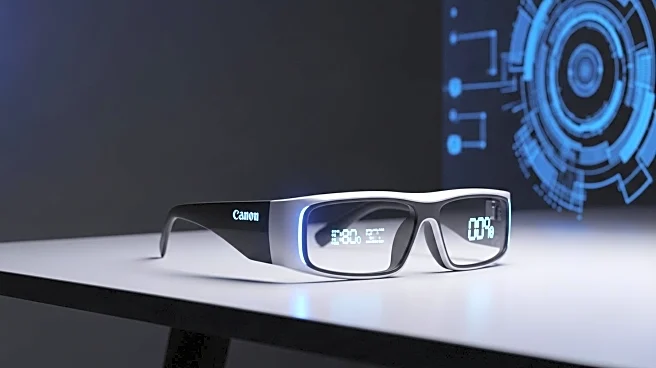What is the story about?
What's Happening?
Meta has introduced a new range of smart glasses powered by artificial intelligence at its annual developers conference, Meta Connect. The glasses, developed in partnership with Ray-Ban and Oakley, feature a high-resolution screen and a 12-megapixel camera, allowing users to conduct video calls and send messages through hand gestures. Despite some technical difficulties during the demonstration, Meta CEO Mark Zuckerberg emphasized the potential of these smart accessories to integrate AI into daily life. Analysts suggest that these glasses may succeed more than Meta's previous Metaverse project due to their practical form factor.
Why It's Important?
The launch of AI-powered smart glasses by Meta represents a significant shift in wearable technology, potentially impacting how users interact with digital environments. By integrating AI into everyday accessories, Meta aims to enhance user experience and expand its market reach. This development could influence the wearable tech industry, prompting competitors to innovate similar products. The success of these glasses could also affect Meta's financial performance, as the company invests heavily in AI infrastructure and talent acquisition. The broader adoption of AI in consumer products may lead to increased scrutiny regarding privacy and ethical considerations.
What's Next?
Meta plans to release the new smart glasses this month, with prices ranging from $379 to $799. The company is investing in AI data centers across the U.S., aiming to develop 'superintelligence' technology. As Meta continues to expand its AI capabilities, it may face challenges in convincing consumers of the benefits of AI glasses over traditional models. The company will likely focus on marketing strategies to highlight the advantages of its new products. Additionally, ongoing scrutiny over the impact of Meta's technology on children may influence future product development and regulatory measures.
Beyond the Headlines
The introduction of AI-powered smart glasses raises questions about privacy and data security, as these devices collect and process personal information. Ethical considerations regarding AI's role in everyday life may lead to discussions on regulation and consumer protection. The long-term implications of integrating AI into wearable technology could reshape societal norms and expectations around digital interaction. As AI becomes more prevalent, there may be cultural shifts in how people perceive and utilize technology in their daily routines.
















